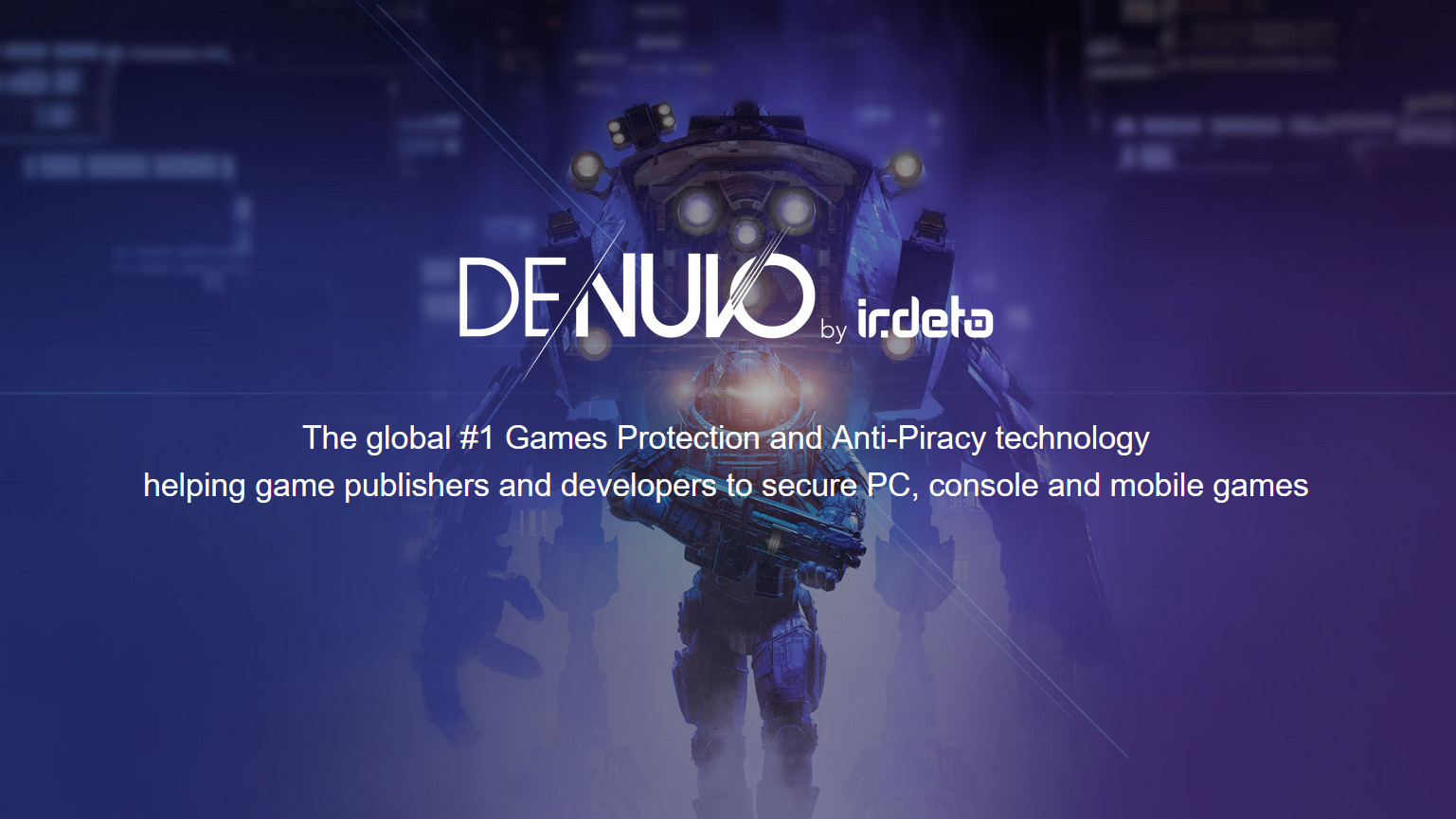Publishers face 20% game revenue reduction if Denuvo DRM is cracked quickly, according to new study
But removing Denuvo DRM after 12 weeks ‘causes zero mean total revenue loss.’

A recently published study on the PC video games market looks at the impact that anti-piracy tech is having on the business. Specifically, The Revenue Effects of Denuvo Digital Rights Management on PC Video Games, by William M. Volckmann II, looks at the revenue impacts of DRM protections being cracked or bypassed.
The range of piracy impacts facing PC games software companies is incredibly wide. One of the highlights of the study, as called out by our headline, is that “Piracy causes mean total revenue to decrease by 20% when Denuvo is cracked quickly.” Thus, companies will be particularly keen to protect their wares for the key first few weeks of release. To this end, it seems like companies will multi-layer protection like Denuvo with other technologies. Though there have been repeated complaints about launch titles lacking optimization and being held back further by intrusive DRM, companies involved typically dismiss such concerns. Now we see why – there’s possibly a fifth of the total revenue at stake.
In summary, the nearer to the release date a crack arrives the bigger the potential effect is on revenue, according to this study.
The first three months
Another interesting finding published by Volckmann was that “there is little justification to employ Denuvo long-term (i.e. for more than three months).” The study saw “nearly zero total revenue loss on average” when a game was either cracked after week 12, or Denuvo DRM was removed by the publisher after this introductory period.
Gamers are sensitive to the “negative technical side effects” of Denuvo, admitted Volkmann. The researcher from the University of North Carolina, seems to recommend DRM removal after three months as the research shows “there is little justification to employ Denuvo long-term.” We can only wish that gaming publishers take note of this research.
Predicting which games will be cracked
Volkmann also pored over the data to see if there was any leading indicator for a game being cracked quickly after release. Overall, he says that “the characteristics of a game cannot explain its likelihood of being cracked.” The study author didn’t seem to find any tell-tale indicator of a game that is ‘likely’ to be cracked – as long as cracking groups were interested in the title.
It is easy to see why a publisher may be attracted to Denuvo, to potentially save that previous 20% in the first 12 weeks (minus Denuvo fees). They don’t really have a solid predictor for how long the DRM will be successful, though. However, if they can save money by dumping Denuvo after 12 weeks is up, that sounds like a good course of action. Certainly, longer DRM contracts seem like money down the drain.
Stay On the Cutting Edge: Get the Tom's Hardware Newsletter
Get Tom's Hardware's best news and in-depth reviews, straight to your inbox.

Mark Tyson is a news editor at Tom's Hardware. He enjoys covering the full breadth of PC tech; from business and semiconductor design to products approaching the edge of reason.
-
Giroro Somebody published a paper just to tell a company's customers that they should keep dumping obscene amounts of money into perpetually re-buying a license for temporarily effective software?Reply
But who would pay to have this paper written, and why? -
Alvar "Miles" Udell The sad thing that DRM, not massive performance hindering or game breaking bugs, is the thing that reduces game revenue for the first 3 months...Reply -
rluker5 If I knew that a game would get DRM removed and a performance increase after 3 months I might wait to buy it. Then lose interest and wait for a sale to get it. I don't think I'm alone as many would prefer to have the game without it. Most sales happen in the first 3 months and you don't want to advertise that the superior version is coming out shortly.Reply
To keep this from happening and to make the most possible profit it seems the answer is DRM forever. Maybe just make it stick to e-cores better.
Just to be clear: I don't want DRM in my games. But a company has to think about their bottom line. -
JTWrenn Would be interesting to cross compare this with which games had a poor implementation of Denuvo causing massive performance loss. If those are in this data set I think it skews the whole issue.Reply -
hotaru251 luckily for publishers only person who did it stopped.Reply
Honestly dont care about denuvo for month or two, but i dont think should be on games after half a yr later...there is no point.
also the results of this are pointless.
You can't find out the actual cost becasue many ppl wont buy a game even if they cant pirate it. so regardless of denuvo or crack doesnt mean someone will pay you for it regardless. (and $0 is still $0) -
umeng2002_2 I wonder who studied his research. I think a European study reveal that piracy has almost no impact on sales.Reply -
das_stig It's not piracy that reduces revenue, that ship sailed years ago when it was found to be a lie and used by the industry to force through piracy laws for them by the paid for politicians, its the greedy publishers charging stupid prices for half finished buggy games and then expect us to pay for the DLC to fix these bugs and content that should be there on release, not to mention the 2nd rate console conversions.Reply -
USAFRet I just find this mindset comical:Reply
"This game sux so hard I will NOT pay for it. But I will play it."
If people would stop patronizing these crappy games, maybe they'd make them a bit better. -
COLGeek As a reminder to all, Tom's Hardware does not support any form of software piracy. None. Period.Reply